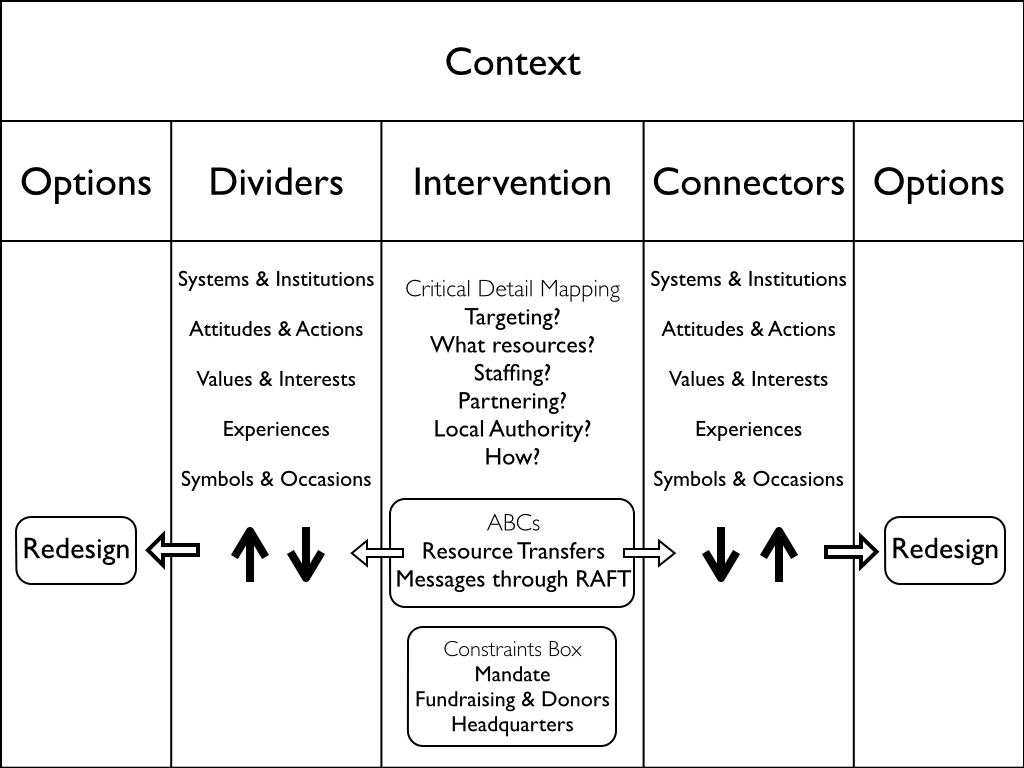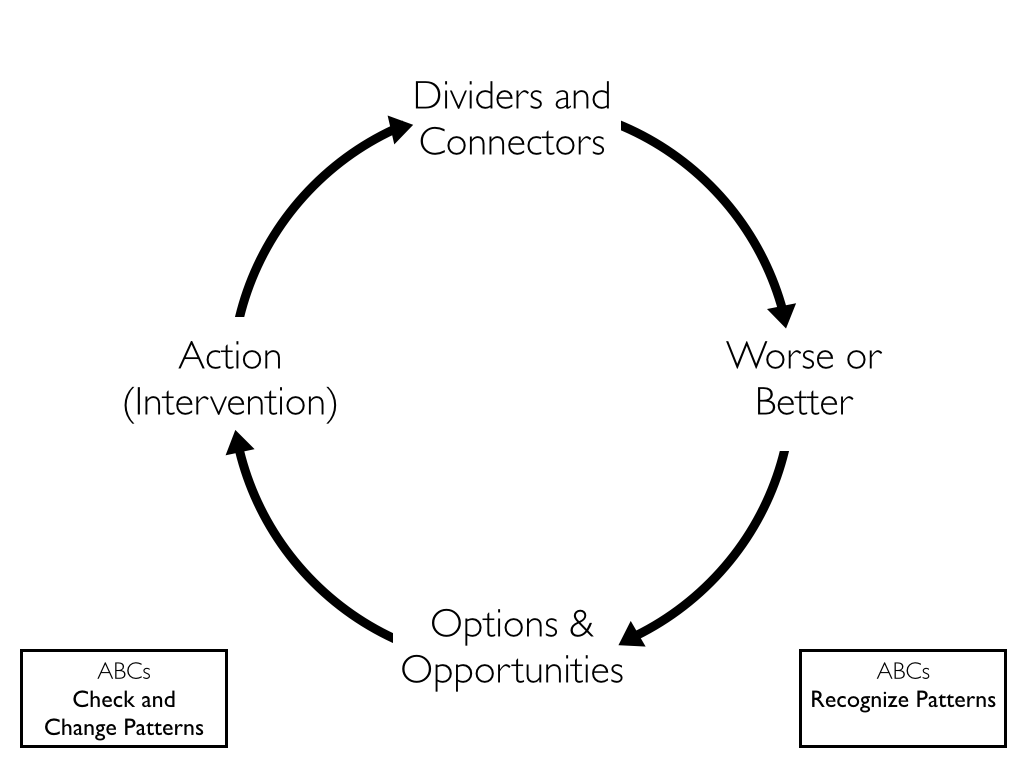A Distribution Effect occurs when people perceive that an organization has a bias in favor for or against a specific group through the way they distribute resources.
The criteria interveners use to select recipients of assistance or to hire their staff or identify their partners often match with local identity groups. If the choices about who to help, who to hire or with whom to partner favor one group over others, and thus provide important resources for survival to this group, the assistance becomes contested and can be a serious source of tension and conflict.
The following section describes a common type of distribution effect, with some examples. The examples are not exhaustive of the type, but rather illustrative of a pattern we have seen repeated in many places.
Distribution Effects based on social or economic criteria
The use of social or economic criteria (“poorest of the poor”, “the landless”, “subsistence farmers”, etc.) can trap organizations into working with a limited set of people. Where these groups largely or completely overlap an identity group, an organization focused on providing resources to just one will feed into tensions.
Organizations often choose these criteria because they want to make an explicit political statement about solidarity. Where a group covered by such criteria is also linked to a political party or agenda, the organization will be perceived as also supporting that agenda. In this way the Distribution Effect is linked with a Legitimization Effect (see below).
Do No Harm users are creative in their use of criteria. They find ways to support their organization’s mandate while maintaining a broad understanding of who they can and will work with.
Previous Page Distribution Effects based on the easy route
Next Page Distribution Effects in post-disaster settings
Related Topics
Distribution Effects in post-conflict settings
Distribution Effects in resource management
Distribution Effects
Why do negative Distribution Effects happen?
Using Distribution Effects
Resource Transfers

